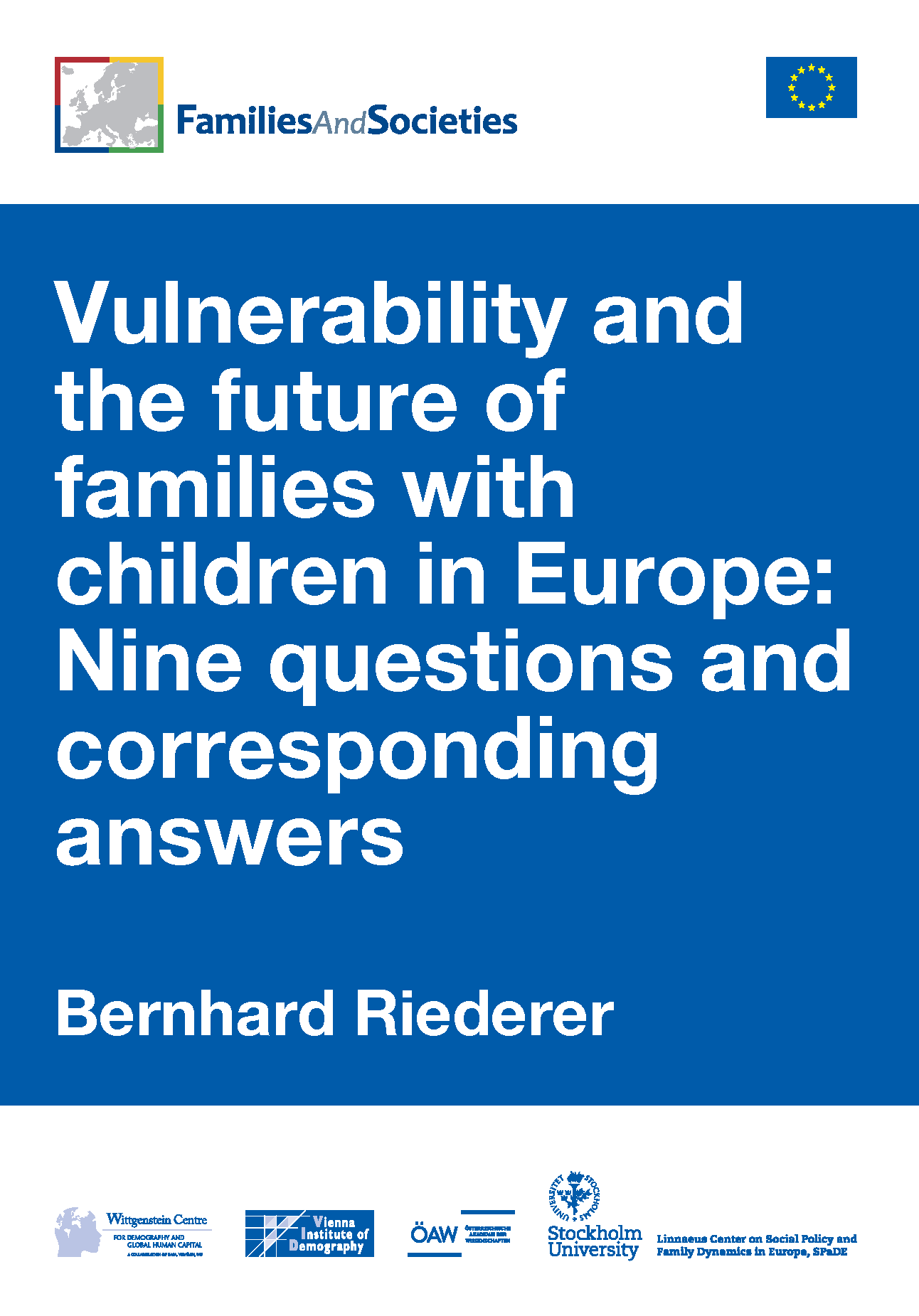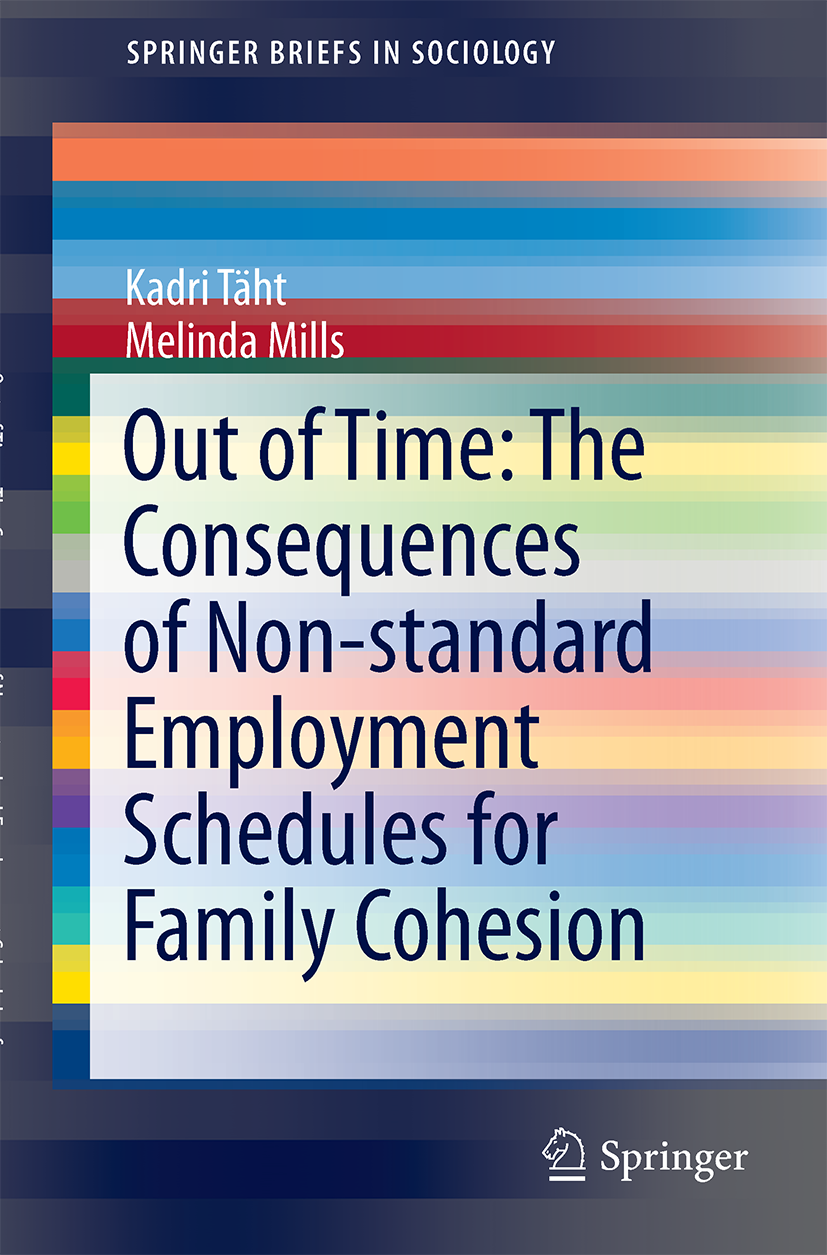Books

Vulnerability and the future of families with children in Europe:
Nine questions and corresponding answers
By Bernhard Riederer
About the book:
This book wants to contribute to answers on important questions about the future of families in Europe. The first part of the book gives an overview over the contemporary situation (existing problems of families) and present as well as future challenges for policy-makers, establishes the vulnerability of families and children as a crucial aspect, and finally discusses the vulnerability of different family types. In particular for the design of efficient (preventative) policies, it is essential to understand vulnerability in detail and to comprehend it in all its facets. Furthermore, knowledge about most family types concerned will allow future policies to focus on specific risk groups and their main challenges. The further two parts of the present book concentrate on the future. The second part covers the future of the vulnerability of families with children in general. It presents expert estimates to answer the question how vulnerability of families with children will develop in the future in Europe. Doing so, the answer will differentiate between different European regions and different dimensions of vulnerability. Next, it aims at the identification of the most important factors that might drive the vulnerability of families with children and their well-being. Going into detail, analyses show which factors seem to be relevant for different dimensions of vulnerability. The identification of factors important for vulnerability development would possibly allow to react to changing circumstances, thereby steering against a potential increase of family vulnerability in the future. In addition, we ask “What policies will be relevant to stop intergenerational vulnerability reproduction?” Social risks are still passed on from one generation to the next. Our societies are not equal with regard to children’s opportunities and future options. Mitigating the reproduction of vulnerability within the family is thus a priority for European Union if it wants to reach its goal of bringing millions of people out of poverty and social exclusion and fostering future economic (and social) prosperity. The third part of the present book covers specific issues of particular relevance. They all focus on trends and developments we could observe during the last years and that are assumed to continue or be liable to recur. It discusses implications of increasing union dissolution and re-partnering trends for future family size and distribution of family types, it asks how an increase in asylum seekers and refugees may affect vulnerability of families in the future, and it considers the crucial theme of gender equality. Finally, closing remarks will summarise main results and draw conclusions for policy-makers. The book ends with ten concrete policy recommendations.
Posted December 21 2017 – Read more

Out of Time: The Consequences of Non-standard Employment Schedules for Family Cohesion
By Kadri Täht and Melinda Mills
About the book:
This pioneering work aims at understanding the impact of non-standard (evening, night, weekend) working time on family cohesion, meaning parent-child interaction, partnership quality and divorce or partnership dissolution. ‘Out of time – the Consequences of Non-standard Employment Schedules for Family Cohesion’ is the first work to treat this important topic in a cross-national, comparative way by using data from two large comparable surveys. The impact of work in non-standard schedules on workers can be divided into individual and social consequences. Research so far has shown the clear individual effects of these schedules, such as increased stress levels and sleeping and physical disorders. There is less clarity about social consequences. Either no or positive effects of these types of schedules on workers and their families are found, or a significant negative impact on the relations between the workers and others, especially other members of the family is shown in research results. This Brief compares the Netherlands and the United States of America, countries that both show a high prevalence of non-standard schedule work, whereas both operate in very different institutional and welfare regime settings of working time regulation. By combining both quantitative and qualitative data, the authors are able to provide generalized views of comparative surveys and challenging those generalizations at the same time, thus enabling the reader to get a better understanding and more balanced view of the actual relationship between non-standard employment schedules and family cohesion [Springer].
Posted December 7 2015 – Link to publisher


